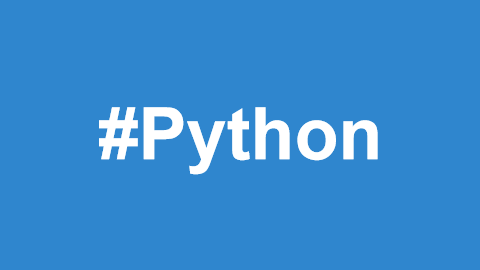The
all()method is more concise and easier to read, especially when dealing with multiple conditions. The conditions are neatly organized in a structure that clearly indicates the goal of checking if all conditions are True.
1. Comparison: Using if all(...) vs. if with Multiple and Operators
When writing conditional statements in Python, it's often necessary to check multiple conditions. Here are two common methods:
Using an
ifstatement with multipleandoperators.Using
if all(...)with a list or generator expression.
1.1 Using if with Multiple and Operators
condition1 = x > 0
condition2 = y < 10
condition3 = z == 5
if condition1 and condition2 and condition3:
print("All conditions are met!")Explanation:
Each condition is evaluated individually and combined using the
andoperator.If any condition is False, the result of the entire expression is False.
Cons:
Readability: As the number of conditions increases, readability decreases. The expression can become lengthy and hard to skim.
Redundancy: The
andoperator needs to be repeated between each condition, making the code appear cluttered.
1.2 Using if all(...)
if all([x > 0, y < 10, z == 5]):
print("All conditions are met!")Explanation:
The
all()function takes an iterable (like a list) and returns True if all elements in the iterable are True.If any condition is False,
all()returns False, and the code block insideifwill not execute.
Pros:
Readability: The
all()method is more concise and easier to read, especially when handling multiple conditions. The conditions are neatly listed in a structure, clearly indicating the intention of checking if all conditions are True.Extensibility: If more conditions need to be added, simply expand the list or generator expression without changing the structure of the
ifstatement.Clarity: Using
all()clearly expresses the intent of checking “all” conditions, enhancing the self-documenting nature of the code.
Comparison Example:Consider a scenario with more conditions.
# Using multiple and operators
if condition1 and condition2 and condition3 and condition4 and condition5:
print("All conditions are met!")
# Using all(...)
if all([condition1, condition2, condition3, condition4, condition5]):
print("All conditions are met!")Using and: The expression can quickly become difficult to parse, especially when conditions are complex or span multiple lines.
Using all(): The conditions are neatly grouped in a list, making it clear whether all conditions are True.
2. Comparison: Using if any(...) vs. if with Multiple or Conditions
When you need to check if at least one of multiple conditions is True, here are two common methods:
Using an
ifstatement with multipleoroperators.Using
if any(...)with a list or generator expression.
2.1 Using if with Multiple or Operators
condition1 = x > 0
condition2 = y < 10
condition3 = z == 5
if condition1 or condition2 or condition3:
print("At least one condition is met!")Explanation:
Each condition is evaluated individually and combined using the
oroperator.If any condition is True, the code inside the
ifblock will execute.
Cons:
Readability: As the number of conditions increases, readability decreases. The expression can become lengthy and hard to quickly understand.
Redundancy: The
oroperator needs to be repeated between each condition, making the code appear messy and hard to maintain.
2.2 Using if any(...)
if any([x > 0, y < 10, z == 5]):
print("At least one condition is met!")Explanation:
The
any()function takes an iterable (like a list) and returns True if at least one element in the iterable is True.If all conditions are False,
any()returns False, and the code inside theifblock will not execute.
Pros:
Readability: The
any()method is more concise and easier to read, especially when dealing with multiple conditions. The conditions are neatly organized in a structure that clearly states whether any condition is True.Extensibility: Adding more conditions is straightforward—just expand the list or generator expression without changing the structure of the
ifstatement.Clarity: Using
any()makes it clear that you are checking for “any” condition, making the code more self-explanatory.
Comparison Example:Consider a scenario with more conditions.
# Using multiple or operators
if condition1 or condition2 or condition3 or condition4 or condition5:
print("At least one condition is met!")
# Using any(...)
if any([condition1, condition2, condition3, condition4, condition5]):
print("At least one condition is met!")Using or: The expression can become cumbersome, especially when the number of conditions increases or the conditions themselves are complex, making intuitive parsing harder.
Using any(): The conditions are neatly grouped in a list, making it immediately clear whether any condition is True.
3. Combining all(...) and any(...) with Python Generators
3.1 Example of all() with a Generator Expression
Suppose you want to check if all elements in a list of numbers are positive.
numbers = [1, 2, 3, 4, 5]
# Using all() with a generator expression
if all(n > 0 for n in numbers):
print("All numbers are positive.")
else:
print("Not all numbers are positive.")Explanation:
The generator expression
(n > 0 for n in numbers)creates an iterator that yields True for each positive number.all()evaluates each value produced by the generator until it finds a False. If all values are True, it returns True.
3.2 Example of any() with a Generator Expression
Now suppose you want to check if at least one even number exists in a list of numbers.
numbers = [1, 3, 5, 7, 8]
# Using any() with a generator expression
if any(n % 2 == 0 for n in numbers):
print("There's at least one even number.")
else:
print("There are no even numbers.")Explanation:
The generator expression
(n % 2 == 0 for n in numbers)yields True for each even number.any()evaluates the values from the generator and returns True as soon as it finds the first True value.
3.3 Why Use Generators?
Efficiency: Generators do not require storing all values in memory at once. They produce values on demand, which is more memory-efficient, especially when dealing with large datasets.
Lazy Evaluation: Conditions are evaluated lazily, meaning that if
all()finds a False orany()finds a True, they stop further evaluation, saving time.



